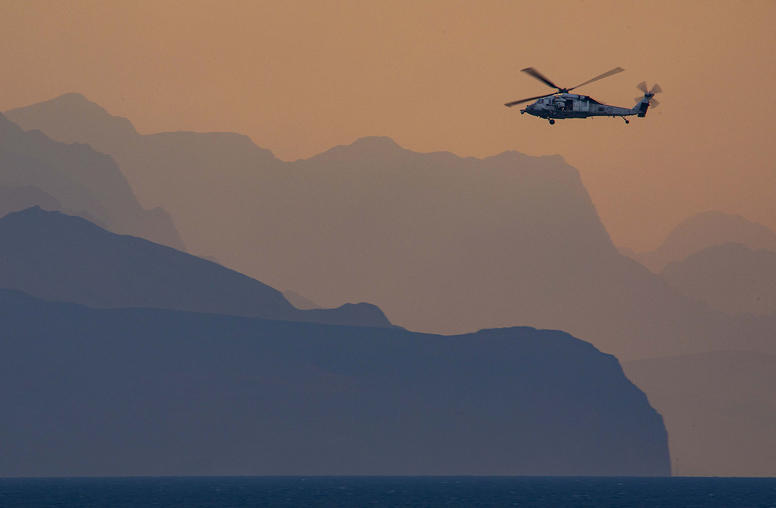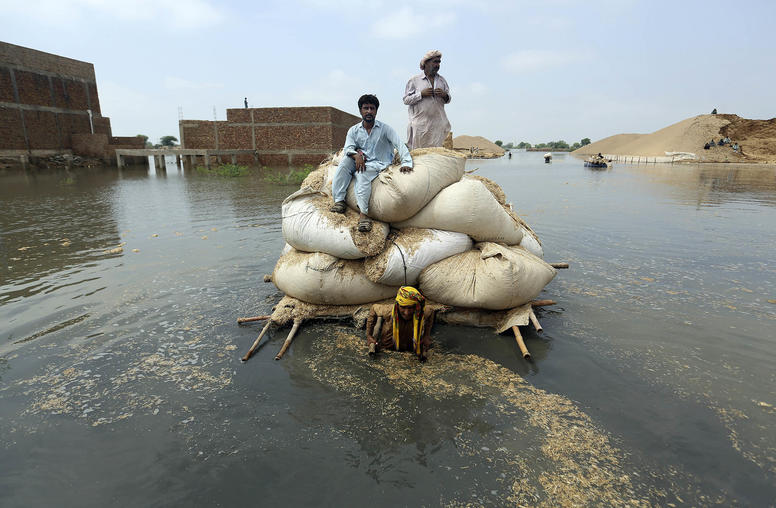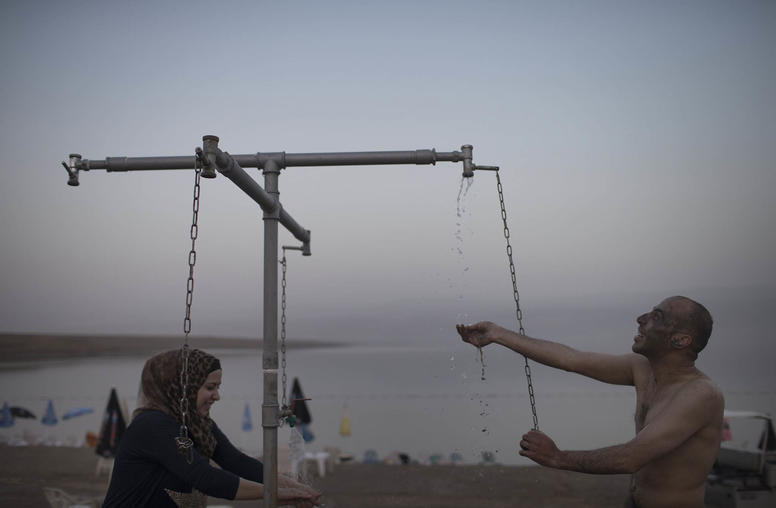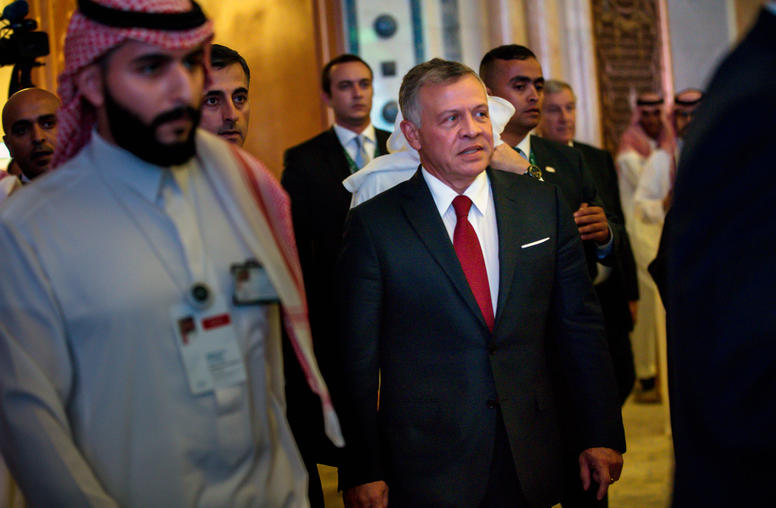Jordan Election Turnout Masks Risk of Shaky Economy and King’s Restive Base
USIP’s continuing series on “sleeper risks” looks at how King Abdullah is facing challenges to his legitimacy from a broader coalition of groups than the high-profile opposition from the Muslim Brotherhood. Economic protests could create a hair-trigger scenario exacerbated by frustration among the monarch’s traditional base.
 Many of the clearest risks of conflict, violence and instability around the world have received widespread media attention. But a variety of other risks and threats have been smoldering quietly. The United States Institute of Peace (USIP) is engaged in a variety of peacebuilding and conflict management efforts in many of the countries where these lesser-known risks are emerging. In a series of articles, the Institute examines some of these “sleeper risks” through the analytical lens of USIP experts. | Read more about USIP’s series on sleeper risks
Many of the clearest risks of conflict, violence and instability around the world have received widespread media attention. But a variety of other risks and threats have been smoldering quietly. The United States Institute of Peace (USIP) is engaged in a variety of peacebuilding and conflict management efforts in many of the countries where these lesser-known risks are emerging. In a series of articles, the Institute examines some of these “sleeper risks” through the analytical lens of USIP experts. | Read more about USIP’s series on sleeper risks
The government of Jordan’s King Abdullah II seized on the impressive voter turnout of 56.5 percent in last month’s parliamentary elections as a validation of his gradual steps toward greater democracy in the face of an opposition boycott by the Muslim Brotherhood. But larger problems lurk in the shadows – economic malaise and frustration among the King’s traditionally steadfast supporters.
Daniel Brumberg, a senior adviser in USIP’s Center for Conflict Analysis and Prevention, said protests in November against subsidy cuts that raised prices for ordinary Jordanians were another sign of hair-trigger discontent. A new drop in natural gas supplies from Egypt in the last days of January heightened concerns again that fuel costs might rise.
“Those who take a more sanguine view say it’s mostly about economic issues and that the King is secure,” Brumberg said in an interview. Economic grievances have long been politicized and the likelihood of more belt-tightening may only exacerbate tension. “The unknown is whether there will be some sort of event -- an over-reaction of the King’s security forces, for example. That kind of thing could trigger more protests.”
Serious unrest would imperil one of the few remaining rocks that the U.S. can lean on in the shifting terrain of the Middle East. Jordan is one of only two Arab states, with Egypt, to have made peace with Israel, and Abdullah has been instrumental in the off-and-on peace process and in U.S. measures against the region’s terrorist groups.
The prevailing assumption that monarchies such as the Hashemite Kingdom offer a more durable form of legitimacy than presidential or other systems of governing that have been upturned in countries like Tunisia, Egypt, and Libya doesn’t account for the wider dissatisfaction that actually exists.
Loyalty to a monarchy often is based on an “unwritten contract,” with the populace according the King legitimacy and fidelity so long as he does not abuse his authority, Brumberg said. It was this kind of deal that in the past ensured Abdullah the support of his traditional Bedouin base, sectors of urban professional Palestinians and even some elements of the Muslim Brotherhood.
But rising prices, partly as a result of measures ordered by the International Monetary Fund, are hitting Jordan’s middle class. And economic issues are compounded by the crisis resulting from waves of refugees fleeing war in neighboring Syria, and by the continuing stall in peace talks between Israel and the Palestinians.
“The king must feel very concerned what the absence of a peace process means for his own survival,” Brumberg said.
In this year’s election, the Islamic Action Front, the political wing of Jordan’s Muslim Brotherhood, boycotted the vote after their request for further reforms beyond measures announced last July was rejected. The group is demanding an increase in the representation of political parties in the parliament.
As he cast his vote, Prime Minister Abdullah Ensour promised that “more democracy is coming,” according to BBC News. He called the election a "stepping stone, or a station, on the path to more vigorous, serious, real and genuine reforms,” the BBC said, citing his comments to reporters.
While advances such as establishment of an Independent Election Commission were “a step forward” from those in 2010, laws and rules still discourage political parties and discount the votes of the country’s mostly urban population, according to the International Republican Institute (IRI). The U.S. nonprofit group helps build political parties and other elements of democratic systems in transitional countries.
“For democracy to advance in Jordan, inequities in the election law must be addressed,” the IRI said in a statement on its website after the elections this year.
Still, it’s worth noting that some restrictions on party registration have been lifted, so this was the first election in which national parties were legally able to register and compete, said Steven Heydemann, a senior adviser for Middle East initiatives at USIP who participated in IRI’s election monitoring mission.
A systematic process for national elections in Jordan is so new that basics like pre-printed, standardized ballots were a first this time, according to the National Democratic Institute, another U.S. political party-building group that also monitored the election and found similar shortcomings.
“The unequal size of districts and an electoral system that amplifies family, tribal and national cleavages limit the development of a truly national legislative body and challenge King Abdullah’s stated aim of encouraging ‘full parliamentary government,’” the mission said. The group recommended more serious changes in the country’s election law to encourage the formation of coalitions and political parties.
The U.S. provides Jordan $660 million each year under a 2008 economic and military aid agreement, and added $100 million in July to bolster the kingdom’s budget for the fiscal year that ended Sept. 30.
Seeing a growing tide of refugees from the war in Syria crossing the border into Jordan, almost two dozen members of the U.S. House and Senate last fall appealed to the State Department to give Jordan additional financial aid of $290 million to ease strains they said threaten a pivotal American ally in an increasingly tumultuous region.
“We believe that these fiscal challenges undercut Jordan’s ability to work with the U.S. to achieve common strategic goals and objectives,” the lawmakers said in group letters from the members in each chamber. “Also at risk are Jordan’s internal stability and the implementation of a new round of economic and political reforms.”
But there’s a downside to American financial aid – the prospect that it might fuel the arguments of opponents that King Abdullah is a puppet. Furthermore, Brumberg said, even more U.S. aid doesn’t necessarily address the root causes of the king’s potentially precarious position.
Read Features in This Series
- <a data-cke-saved-href="../publications/syria-regional-fallout-the-civil-war" href="../publications/syria-regional-fallout-the-civil-war" "="">Syria: Regional Fallout from the Civil War (January 29, 2013)
- Nuclear Nonproliferation: A Corroding International Regime (January 31, 2013)
- The Israeli-Palestinian Standoff: More Risks Emerging (February 5, 2013)
- Sudan: Economic Pressures Building (February 12, 2013)
- South Sudan: Undemocratic Tendencies on the Rise (February 14, 2013)
- Pakistan’s Militant, Nuclear Threats Mask Underlying Risk: Water (February 19, 2013)
- Afghanistan Land Conflicts Pit Nomads Against Villagers, Power Brokers Against Each Other (February 21, 2013)



